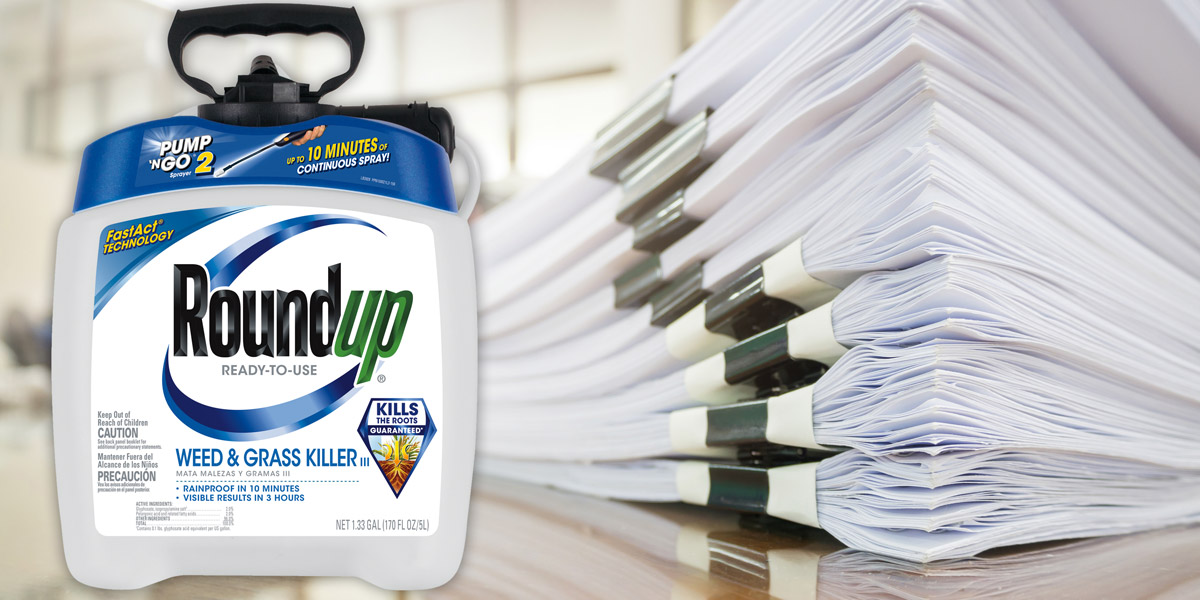
Expert reports suggest agencies did not examine the original studies
The European Commission has dismissed a report in the Guardian newspaper that the European Food Safety Authority (EFSA) copy-pasted parts of its safety assessment of glyphosate from industry reports on the chemical, according to EU Food Policy.[1]
EFSA, and subsequently the European Chemicals Agency (ECHA), concluded that glyphosate does not pose a carcinogenic hazard.
When asked about the Guardian report, according to EU Food Policy, the Commission’s health and food safety spokesperson Anca Paduraru said that given the "thorough scrutiny of all the available data by EFSA and the European Chemicals Agency, there were no grounds to call into question" the conclusions.[2] But closer analysis suggests that the agencies did not, after all, read the original studies.
Spotlight on BfR
EU Food Policy added that the EU report highlighted in the Guardian was not in fact written by EFSA, but was compiled by the German Institute for Risk Assessment, the BfR. EFSA told EU Food Policy that its own conclusions are entirely separate.
But in fact, EFSA based its report closely on that of the BfR.
Did BfR scrutinise the data for itself?
BfR claimed that it checked and evaluated every study in detail.
However, this claim is cast into doubt by two expert analyses.
First, a report by the epidemiologist Prof Dr Eberhard Greiser showed that BfR wrongly dismissed epidemiological studies by claiming that they did not account for confounding factors (smoking, etc.), although the studies themselves made clear that these factors were fully accounted for. This raises the strong possibility that the BfR experts did not check the studies in question.
A separate report by the toxicologist Dr Peter Clausing showed that BfR had relied in its initial report on statistical tests applied by industry. These had only indicated a significant carcinogenic effect of glyphosate for a single type of tumour in a single animal study. BfR had to re-assess its initial evaluation after the 2015 publication of the IARC monograph on glyphosate, which had concluded that the chemical is a probable human carcinogen, based on “sufficient” evidence in animal studies.
After re-checking the industry data, BfR subsequently acknowledged significant increases in tumours in seven out of twelve animal studies. But the German agency nonetheless stuck to its prior conclusion that glyphosate is non-carcinogenic.
This discrepancy led Clausing to conclude that BfR, in common with EFSA and ECHA, “violated their own rules” to reach a verdict that glyphosate is safe. A close reading of Clausing’s arguments makes the accusation hard to deny.
Prof Dr Eberhard Greiser's report, translated into English, is here.
The German original is here.
Notes
1. EU Food Policy (2017). Commission dismisses glyphosate "copy and paste" claims. 18 September. Subscription required; no direct link
2. The Commission’s statement itself is virtually a copy-paste of the published minutes of the ScoPAFF (EU Commission’s Standing Committee on Plants, Animals, Food and Feed) meeting on 19-20 July: "Therefore, currently, given the thorough scrutiny of all available information by the two EU agencies, there are no grounds to call into question the scientific assessments and conclusions on glyphosate carried out in the European Union."









